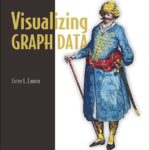Make your writing clear Say what you mean For example, the sentence Parental involvement caused lower levels of peer problems. suggests direct causation. However, if this was an observational study, the two outcomes were probably observed to occur together, but direct causation was … [Read more...]
How to prevent plagiarism
In this blog, our guest blogger, Professor Emeritus Dolores Takemoto from Kansas State University discusses plagiarism in scientific documents: what it is, what the penalties are (even if unintentional), and how to avoid it. Merriam-Webster’s online dictionary defines plagiarism as “to steal and … [Read more...]
Visualizing Graph Data
Now available for ACM Members: Visualizing Graph Data, by Corey Lanum. Loaded with fascinating examples and case studies; this book shows you how to understand graph data, build graph data structures, and create meaningful visualizations. … [Read more...]
Academic conferences in a post-COVID-19 world
The outbreak of COVID-19 has resulted in the cancellation of numerous academic conferences worldwide, with Nature questioning whether 2020 could be the "year without conferences" [1]. It is not so unusual for academic events to be cancelled. For example, the 2012 American Political Science … [Read more...]
Effective science writing: quick tips
Focus on the “take-home” message What is the core message of your paper? What is the most important thing you want readers to remember after reading your paper? Can you describe the core message of your paper to a colleague in one minute? Can you condense the paper into 3 to 5 highlights? Can you … [Read more...]




